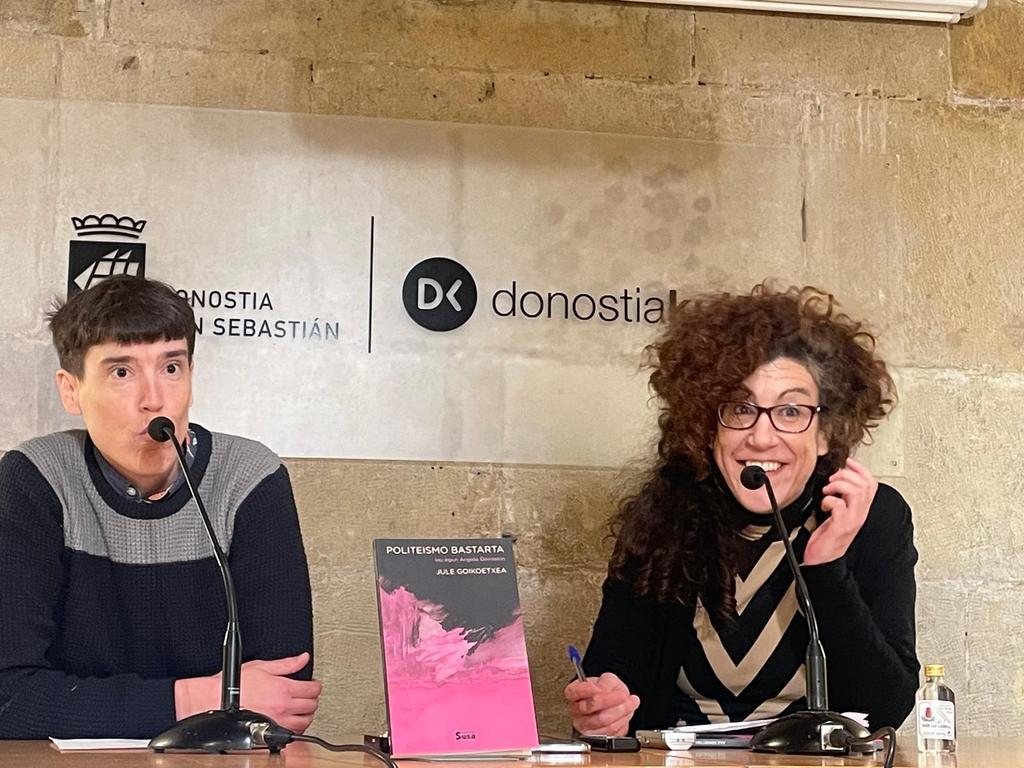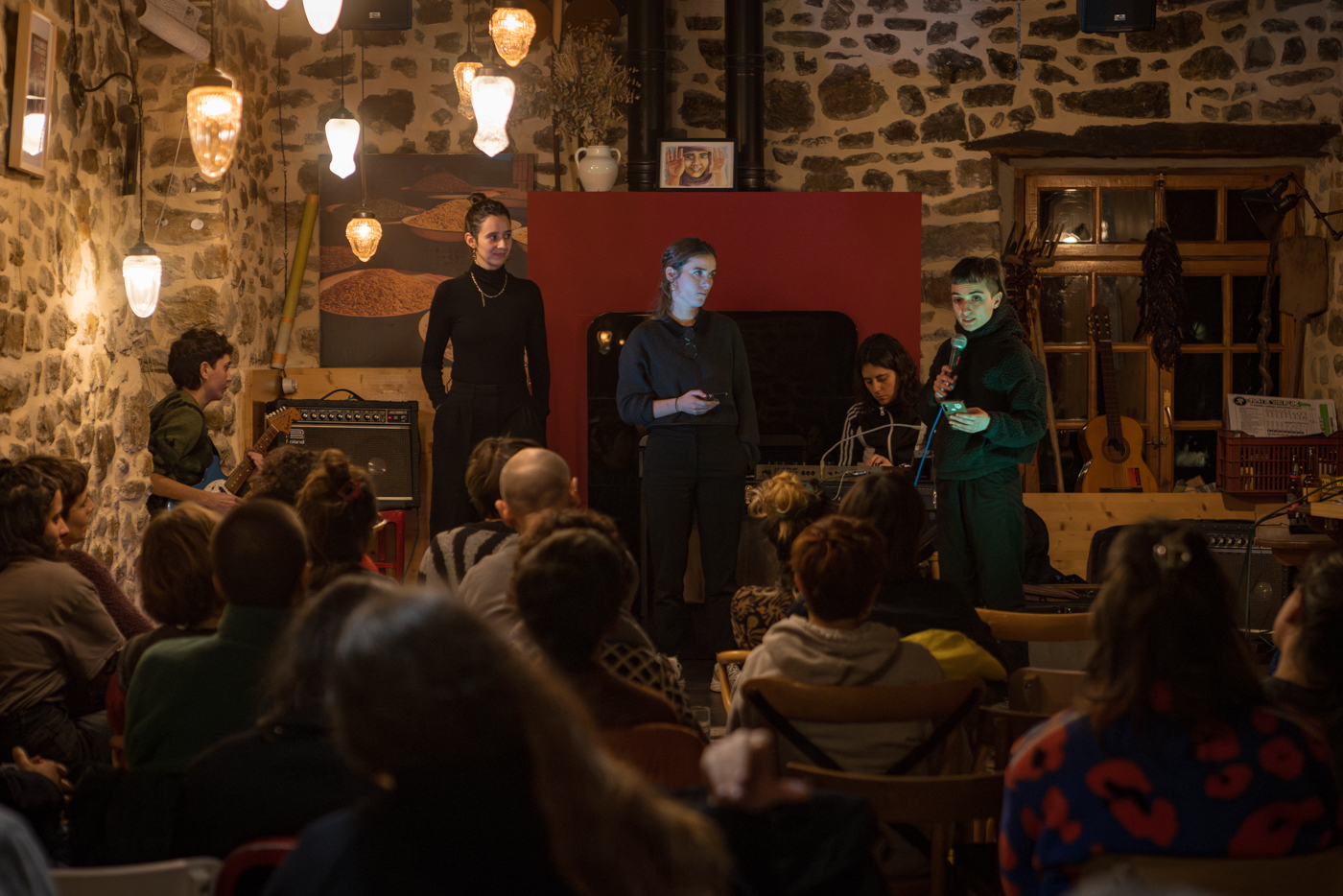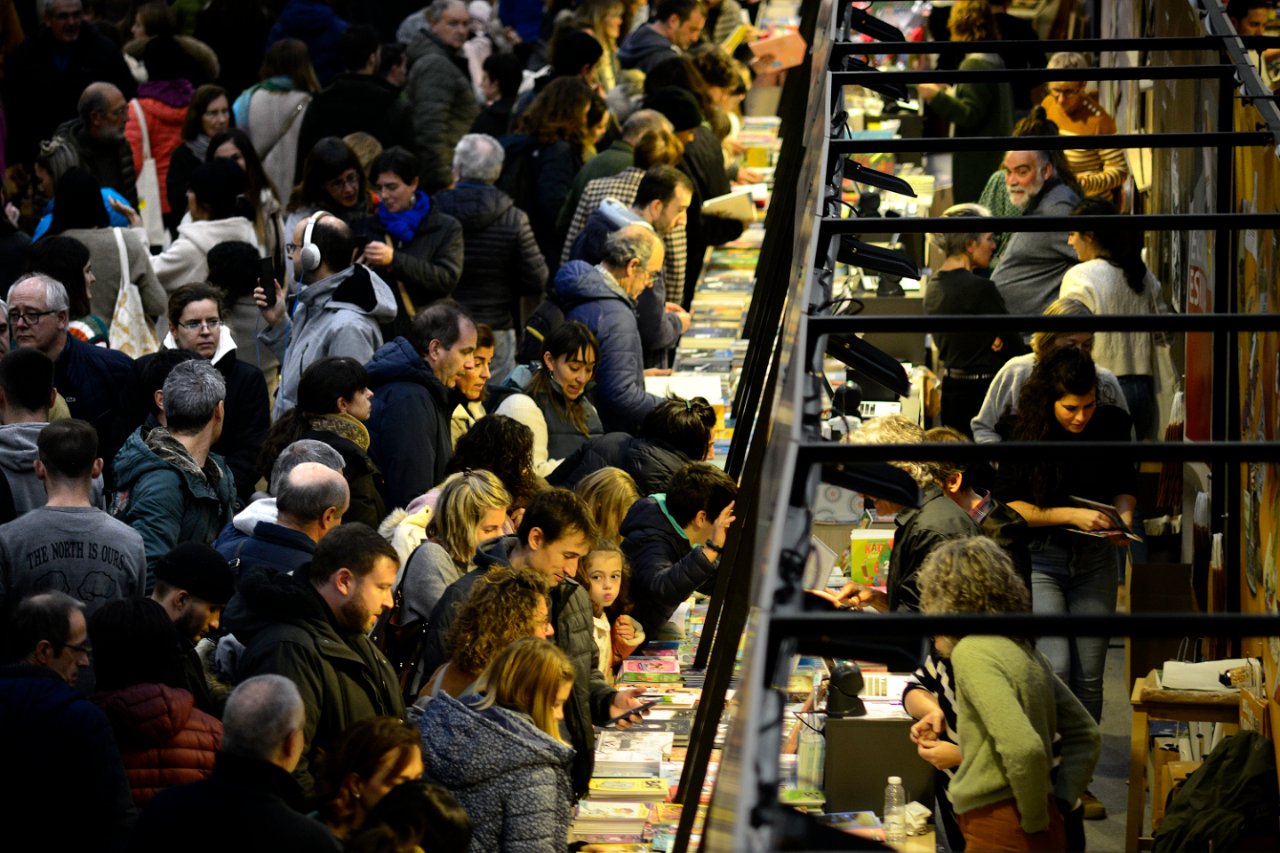‘Wild Polytheism’: four days in the thoughts of Angela Davis and Jule Goikoetxea
Goikoetxea has published a new book with the editorial Susa: Wild polytheism. Despite describing it as a novel, it is a sweet and vivid chronicle that will cause the reader to step into Goikoetxea's thoughts. The presentation has taken place in the basement of San Jerónimo Street of Donostia-San Sebastián, before dozens of people, on Tuesday at noon, at the time of the Mass.

From 24 to 27 May of this year, the radical book fair Fira Literal was held in Barcelona (Catalan Countries). It was the tenth edition, in which the organization made a bet and invited four renowned philosophers from all over the world, including Angela Davis.
“I was your bodyguard,” said Jule Goikoetxea during the presentation of the book. But a literal, not metaphorical bodyguard. That was Goikoetxea's mission: Get Davis moving from one side to the other, help complete the journey, be a travel companion, guide, and even translator. Davis's secretary, Cassandra, asked him to strictly observe the schedules: “No photos, no signatures, no acts without consensus.” The story starts at the same time, when Goikoetxea is in the room of the top-class hotel in Barcelona, waiting for his meeting with Davis.
“I would like to point out that this book is not four days of painters with Angela Davis,” said Susa Leire López Ziluaga’s editor, “not even four memorable days with a famous person.” In fact, what will be read in the book Polytheism basarta is a “distillation” of thoughts that pass through or can pass through a certain mind, according to the editor. Many of the facts, most of them real, but not all, seem to be, according to the book's principle, the following: “Based on real and unreal facts, such as the free market and the social contract.” Some are thoughts that are traversed by imagination.
It is therefore a complex genre in terms of style. The editorial Susa has presented the book as a novel in which it stands out that it is not easy to make a classification, as it fits the very nature of the book. However, this work has a great trace from the chronicle. This is, finally, the role of the chronicler, to make the experience known firsthand, going inside and chewing. The book is presented as an exercise in deepening the brain, written in the first person.
Politics and feminism
The days he shares with Angela Davis are an excuse for Goikoetxea to think about politics and feminism, how patriarchy, capitalism and colonialism condition everyday life. This is clearly seen, for example, when you are about to meet Davis on the first day, on the thorny passage leading with the hooks of hair: “Tie him well so as not to be frightened. To be clear, I have never suffered any discrimination for my hair. Because my skin is white. There were some insults, but they were misogyny. Abuse isn't well seen if you think you're a woman. (...) Jule, focus. I have four minutes to go down. I finally put five hooks. All excess is anti-female. And the same thing happens with hair, love for smooth, tidy, hairstyle hair is love for domination and safety. Ilepolítica”.
As Goikoetxea has pointed out, this is a work written since the fourth feminist wave, in which the peripheral voices of the twentieth century, “bastard worldviews”, are approaching the center.
Four days, four chapters
Davis and Goikoetxea are not the only protagonists of the film. Feminist writers, philosophers and researchers Sarah Ahmed and Vandana Shiva, who also participated in the Barcelona Congress of Literature, and who coincided with Davis, will also take the voice. There will also be the cleaners of the luxurious hotel in which Davis and Goikoetxea were housed, and the Bar-Zulús as well as the top dignitaries of the Generalitat of Catalonia, who met Davis one afternoon. Finally, from these characters, we will see the goddesses created by the imagination of Goikoetxea, the Buladas and the human holobiontes with humor and vitality.
Each chapter is a day. The first of them will leave at the hotel, in the moments prior to their meeting with Davis, where they also appear direous and contradictory, and once they meet with Davis, they have conversations and conferences. In the second chapter, Shiva will focus on the speech and will stay for dinner with him; not only a small part of that conversation, but also the subsequent taxi conversation with Davis about what Gaudí was. The third of the interviewees will be Pompeu Fabra, who in the morning will be at Pompeu Fabra University, in the morning, after lunch, taxi to the hotel, time of rest and visit to the Generalitat, where Davis will ask Goikoetxea about the Catalan and Basque political situation. And finally, in the fourth chapter, the focus will be on the staff of the hotel.
Joan Tartas (Sohüta, 1610 - date of unknown death) is not one of the most famous writers in the history of our letters and yet we discover good things in this “mendre piece” whose title, let us admit it from the beginning, is probably not the most commercial of the titles... [+]














ilbeltza-(1).jpg)




